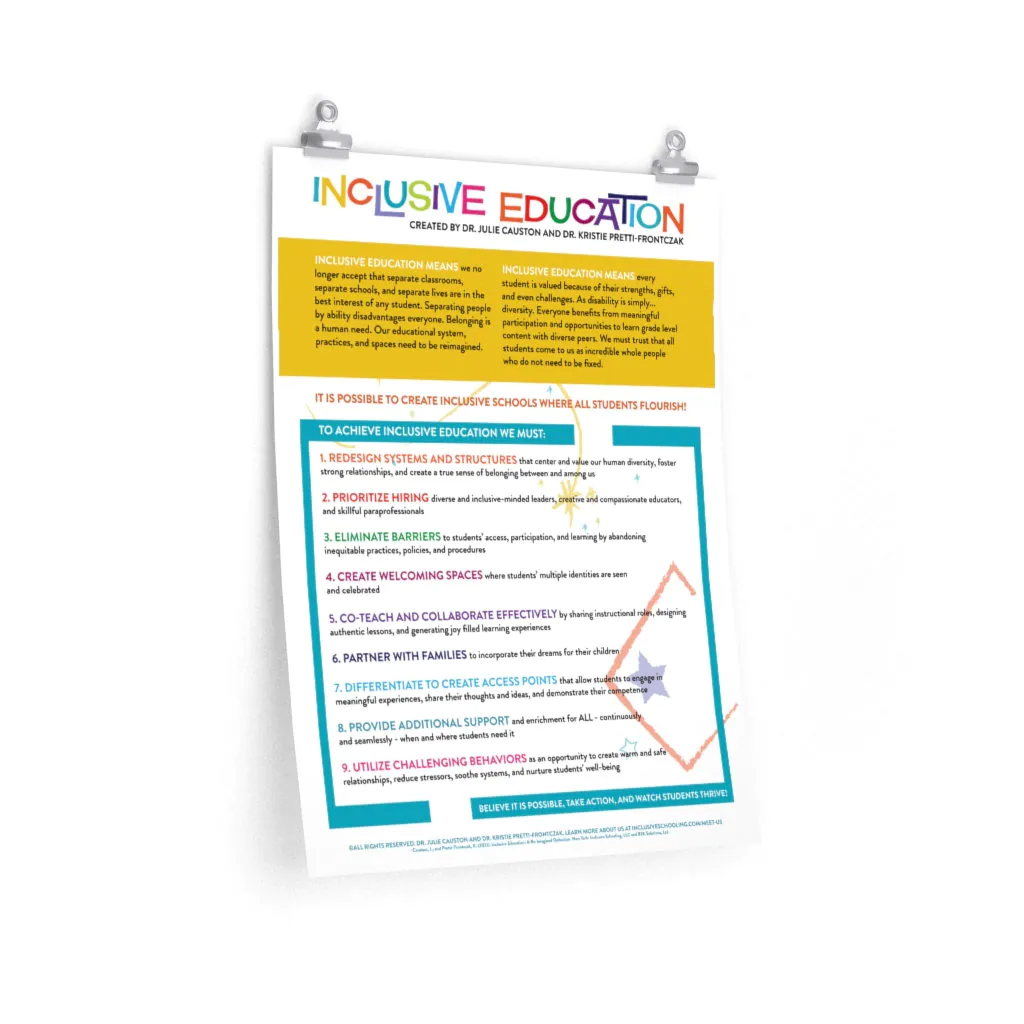Inclusion Blog
Inclusive Schooling Blog
Productivity Phrases: Magic Words to Make Meetings Matter
Meetings are an essential part of any educational environment, especially for inclusive educators and administrators. They provide a platform for collaboration, problem-solving, and decision-making. However, without the right communication strategies, meetings can...
Transform Your School: How Co-Teaching Unlocks Unprecedented Student Success
Imagine a classroom where every learner, regardless of age or ability, thrives and achieves their full potential. Sounds like a dream, right? Well, it doesn’t have to be. One of the most effective strategies to improve learner outcomes is co-teaching. Whether you're...
Can a Para Co-Teach? Unveiling the Power of Inclusive Co-Teaching
When we talk about making our classrooms more inclusive, one big question arises: Can paraprofessionals co-teach? Absolutely, they can! This blog dives into how paraprofessionals, or educational assistants, can play a key role in co-teaching and really boost the...
Creating Access and Participation for All: The Continuum of Services Explained
In special education, two critical concepts often arise inclusive education and the continuum of services. At first glance, these might seem like opposing ideas, but they actually work together harmoniously. This blog post will explore how these concepts intersect....
Setting Boundaries: A Pathway to Personal Empowerment and Inclusive Change
Have you ever felt overwhelmed by the demands of your day, struggling to find a balance between personal well-being and professional responsibilities? Many school leaders who are doing courageous work struggle. You're not alone. Many of us grapple with setting boundaries, wondering if we’re being fair, flexible, or even considerate enough.
But what if we could reframe boundaries as empowering choices rather than limitations? 🌟
Creating Inclusive Classrooms: The Importance of Eliminating Ableist Language
The other day, someone posted a comment on our Facebook thread riddled with ableist language. After blocking and reporting the post as hate speech, we decided to reframe this negative experience into a powerful learning opportunity. First, we reflected on the impact...

INCLUSIVE EDUCATION MEANS
we no longer accept that separate classrooms, separate schools, and separate lives are in the best interest of any student. Separating people by ability disadvantages everyone. Belonging is a human need. Our educational system, practices, and spaces, need to be reimagined.
INCLUSIVE EDUCATION MEANS
every student is valued because of their strengths, gifts, and even challenges. As disability is simply... diversity. Everyone benefits from meaningful participation and opportunities to learn grade level content with diverse peers. We must trust that all students come to us as incredible whole people who do not need to be fixed.








Be a circle maker
(hint: there's space for everyone)
Follow us on your favorite social media platforms
to be the first to discover our newest inclusive resources! Let’s continue to grow together!